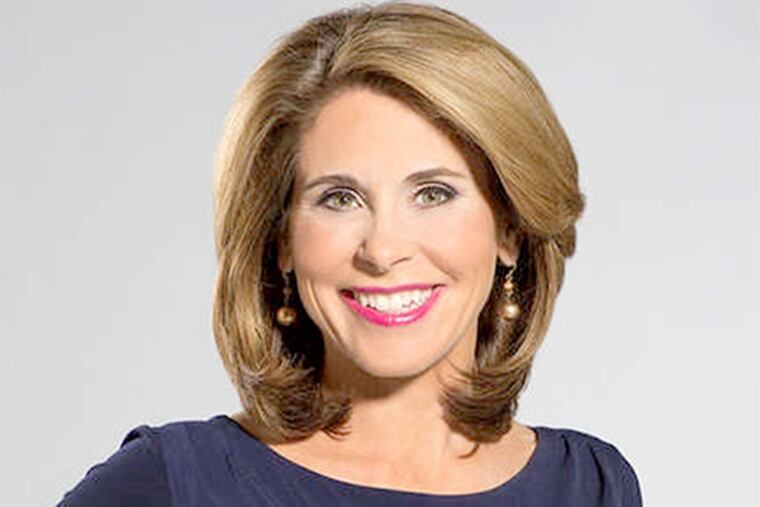Serious 'weather geek' sees flakiness in the '15 forecast
She may be from upstate New York, but that doesn't mean Kathy Orr looks forward to winter's cold fronts.

SHE MAY BE from upstate New York, but that doesn't mean Kathy Orr looks forward to winter's cold fronts. The CBS3 chief meteorologist has been warning Philly viewers what to expect weatherwise since she joined NBC10 in 1998 as the first woman meteorologist in the market. (She's been with Eyewitness News since 2003).
Her job has changed quite a bit since she started. "We used to have to call people and ask 'What's the weather like in Allentown?'" Orr said.
Molly Eichel chatted with Orr about weather in general, the importance of science in the classroom and what might be coming our way between now and spring.
Q I think everyone has an ideal weather type. I'm an 85-degrees-and-sunny kind of girl. What's your ideal temp?
It's funny you say that. I did a story on what type of weather we prefer with a psychology professor from Temple. Women prefer warmer weather.
I'm a 78-degree girl and sunny. Not too hot, not too cold. It has to be warm enough for me to go swimming. I just want to be active.
Q But I know you're from a cold place.
Last winter was like an upstate New York winter. By the time March rolled out and we still had snow, I think we were all in denial.
But it was fun, especially if you have young children. There's not a lot of cold-weather activities if there's no snow. My son played a lot of football in the snow and I knew he wouldn't get hurt. Natural padding.
Q The long-range winter forecast is a huge part of your job. When do you start working on that?
We start in the fall. You can look in October. We look at snowfall over the world. If there's more snow in Siberia in the winter, that can mean more snow for us.
We used to just look at the U.S., but then El Nino popped up about 20 years ago. There was warm water off the coast of Peru and you're thinking "What does that mean for us?"
So we started looking at global weather. It gives us more confidence in our forecast. It helps in the long range and the short range.
Last winter what happened was, there was a typhoon that hit the Aleutian Islands and that forced all the warm air north. That's how we got the polar vortex.
Q And this year?
This year, my winter forecast was average temperatures for December, which is about right, even higher than average. But we're expecting more snow in January and February, a couple storms in those months.
Q At what point did you think, "OK, I'm a huge weather geek. I want to get into meteorology."
I was 12 years old when I told my mother I wanted to be a meteorologist. I said "I want to be a meteorologist. I think I'm going to need braces." And she laughed.
But there weren't a lot of schools for meteorology. I was in broadcast journalism [at Syracuse University], but they didn't have a meteorology major. So I finished my undergrad and went back for another degree [at the State University of Oswego].
When I was younger, there was the silly weatherman on TV, but then it started changing into the credible meteorologist.
I had a weather station as a kid. I think that's why I'm so into the classes and the Kidcasters [a program in which kids are given the opportunity to report the weather on TV].
Q You've been doing that for a while now.
I have these Kidcasters who are now going to school for meteorology. That was the purpose, to get boys and girls into math and science.
Q I'm sure you get approached in public all the time by people who want to talk about the weather.
I was at the grocery store [on Monday], and I got "Hey, where's the rain?" And I was like, "Oh, don't worry. It'll be there by 2 p.m."
My daughter would say, "Mommy, do you know them?" But I don't mind it. It's a privilege of what I do.